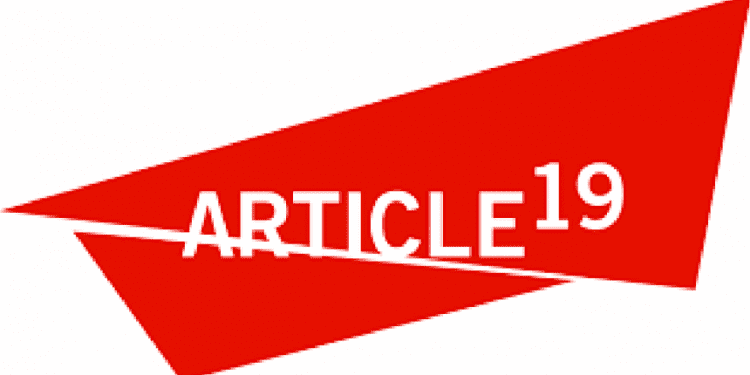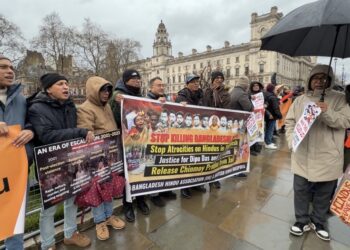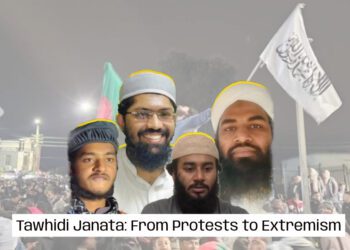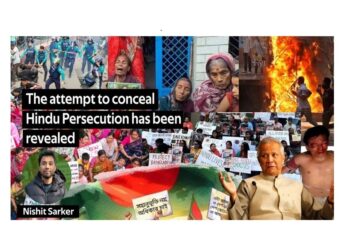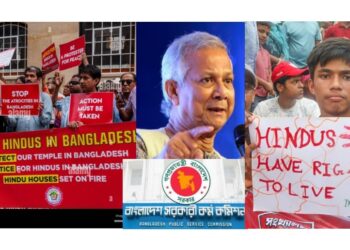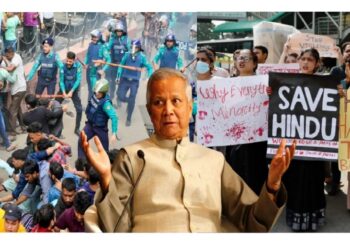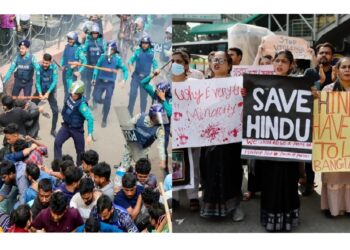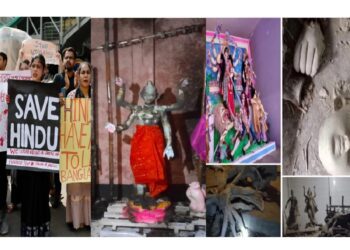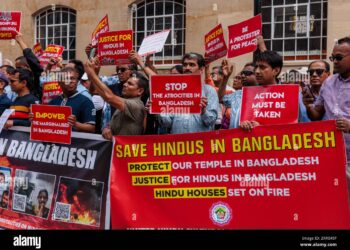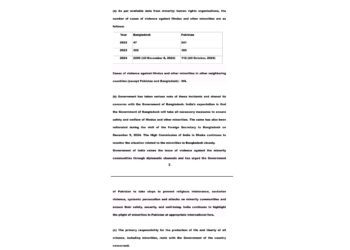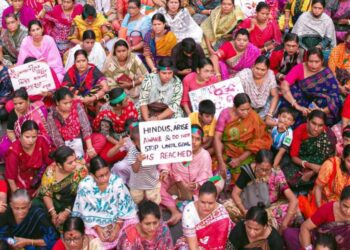According to the Global Expression Report 2024 released yesterday, Bangladesh has been labeled as “in crisis” in terms of freedom of expression.
The index classifies countries as “open”, “less restricted”, “highly restricted”, and “in crisis”.
“In 2023, 53 percent of the world’s population, over four billion people in 39 countries, lived in ‘in crisis’ conditions,” the report highlighted.
Countries scoring between zero and 19 out of 100 are deemed to be in crisis, indicating severe limitations on freedom of expression, the report noted.
Bangladesh scored 12.
It ranked 128 out of 161 countries, flanked by Democratic Republic of Congo and Algeria.
The worst ranking country is North Korea’s.
Bangladesh’s freedom of expression has been considered to be in a state of crisis since 2014 by this ranking, said Sheikh Manjur-e-Alam, regional director of Article-19 South Asia, while presenting the findings at a press briefing at Hotel Lakeshore Heights in the capital.
“In 2000, Bangladesh was considered to be a country whose freedom of expression is ‘less restricted’. Then in 2006, it first dropped in ranking to become ‘highly restricted’. Since then it has been on a downwards trend.”
The report takes into account 25 indicators related to freedom of expression, digital rights, personal and political independence, political participation, civic participation, and media freedom.
When comparing Bangladesh’s scores for different indicators, one of the areas it has performed worst in over the years is freedom from government social media monitoring and government social media censorship.
Other indicators that affected the country’s scores include arrests for political content, lack of freedom of peaceful assembly, and lack of freedom of academic exchange and expression.
Also faring poorly were the scores in media self-censorship and government censorship of journalists.
“Since 2007, Bangladesh’s scores in keeping journalists free from harassment has been negative,” said Alam.
The country has shown improvement in reducing political killings and in freedom of religion.
To rank different countries, the index asks questions like whether the government represses civil society organisations, whether it blocks access to certain websites, or censors social media, and whether it has institutions to monitor online content.
The index also assesses how comprehensive the surveillance of political content in social media by the government is.
Speaking at the press briefing, executive director of Transparency International Bangladesh Iftekharuzzaman said Bangladesh got independence only because of the freedom of expression.
“The current situation was never ever expected 53 years ago, even in dreams … Freedom of expression is now a hostage of power politics. There is surveillance in social media posts, ban on political programmes, political killings have not stopped yet, and [there is] self-censorship. [All these] brings Bangladesh at the bottom of the list.”
Prothom Alo Joint Editor Sohrab Hasan said if good terms exist between a government and the people, there is no need for acts like CSA or DSA.
“Whenever the government starts fearing the people, they try to control them with various rules and regulations… Until the culture of fear is removed, freedom of expression will be at stake.”
“The published report did not surprise me,” said Syeda Rizwana Hasan, chief executive of the Bangladesh Environmental Lawyers Association. “To resolve the situation, the government needs to listen to civil society. To better our image, we must engage in dialogue and work together rather than isolate ourselves. There should be no punishment for speaking the truth; instead, we should consider it and find ways to make corrections.”

